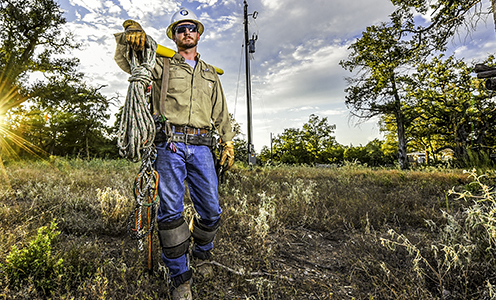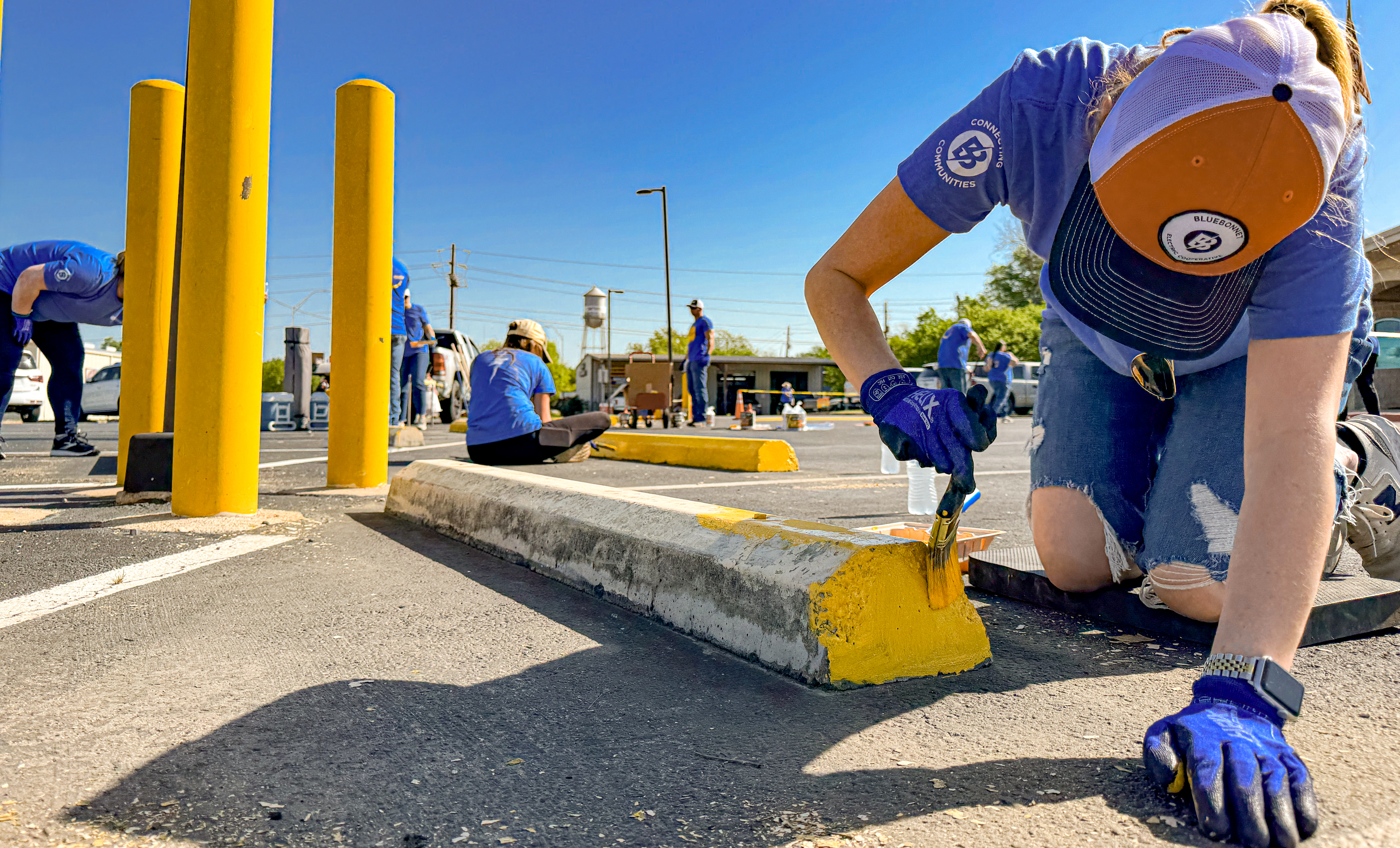The cooperative way
Recent news
The Bastrop Area Pickleball Association will replace outdated lighting at its courts with energy-efficient LED lighting with the help of a grant from Bluebonnet Electric Cooperative and the Lower Colorado River Authority.
The $9,730 Community Development Partnership Program grant, along with $4,300 in matching funds from the association, will be used to replace 30-year-old lighting that limits visibility and sometimes makes it difficult for players to see activity on the court. The improved lighting has become increasingly needed as more people play later in the day after school or work, said Gary Moss, president of the Bastrop Area Pickleball Association.
The facility has 10 courts and is open from 7 a.m. to 10 p.m. seven days a week. Pickleball, which combines elements of tennis, badminton and Ping-Pong, is one of the fastest-growing sports in the country and is popular with players of all ages. The game has a smaller court and doesn’t require quite as much running as tennis.
“We had a game recently that was a 70-year-old grandfather, a 40-year-old dad, a 38-year-old mom, and a 9-year-old son,” Moss said. “And they were really playing – not playing around, really competing.”
Moss said competition isn’t the only reason the facility has become so popular. He said pickleball also is a great way for visitors to socialize, chatting and getting to know one another as they wait for their next match. In just over a year, membership in the Bastrop Area Pickleball Association has grown from only a few members to more than 300.
With the new lighting, the group sees an opportunity to host large weekend tournaments, drawing in visitors from around the region and providing economic benefits for the community.
Moss said he and other volunteers, with the help of sponsors, have helped transform older seldom-used tennis courts into the popular pickleball facility by removing weeds, replacing cracked concrete, and working on new fences.
“We have a lot of great people who work hard and play hard,” Moss said. “We’ve really turned this into a spectacular thing.”
The group offers a $200 annual membership for unlimited play, and offers no-cost memberships to those aged 18 and under and low-income families.
The community grant is one of six grants awarded recently through LCRA’s Community Development Partnership Program, which helps volunteer fire departments, local governments, emergency responders and nonprofit organizations fund capital improvement projects in LCRA’s wholesale electric, water and transmission service areas. The program is part of LCRA’s effort to give back to the communities it serves. Bluebonnet Electric Cooperative is one of LCRA’s wholesale electric customers and is a partner in the grant program.
Applications for the next round of grants will be accepted in July. More information is available at lcra.org/cdpp.
Juneteenth, June 19, marks the date in 1865 when a Union general landed at Galveston to announce that all Texas slaves were free. This was two years after President Abraham Lincoln’s Emancipation Proclamation and two months after the surrender of the Confederate Army.
In 1980, Juneteenth officially became a Texas state holiday, and in 2021, Juneteenth was officially designated a federal holiday.
Keep an eye on Bluebonnet’s social media pages to learn about area Juneteenth events. Email socialmedia@bluebonnet.coop to let us know of your community event.
Bluebonnet offices will be closed June 19 in honor of the holiday.
TEXAS FREEDOM COLONIES
In the late 1800s, people who had been enslaved and their descendants in rural areas realized sharecropping would never lead to their dream of independence and true freedom. So, a movement began in Texas and other southern states for Black Americans to form their own landowner communities, unincorporated and remote from whites. They chose uncultivated rural land that was cheap or could be claimed as untitled.
Growth of these settlements, sometimes called freedom colonies, peaked in the early 1900s, with 31% of Black Texans owning land.
About 400 of these settlements developed, including St. John Colony on the Bastrop-Caldwell county line, Nunnsville in Lee County and Mount Fall in Washington County. Get more information from the Texas Freedom Colonies Project at thetexasfreedomcoloniesproject.com.





